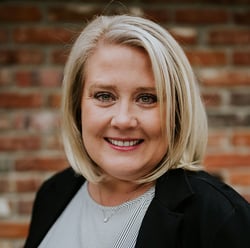PREPARING Patients and Loved Ones’ End-of-Life Wishes

I often get asked why I work at Village Medical™, and for me the answer is easy. Our value-based care model is designed to put patients’ wellbeing first. We do this by allowing our clinical teams the time and resources to treat patients like family and friends. As the director of care management, I am honored to have a team of hundreds of care managers. We mostly see patients over the age of 65 who have chronic conditions, such as diabetes, or complex social and behavioral needs. Through their hearts and hands, they have meaningful conversations daily with patients about their end-of-life wishes.
Below is my story on how PREPARE for your care helped facilitate the most intimate and meaningful conversation with my stepdad and the peace it has provided my family as he ages.
Every Thursday, my stepdad, Charlie B., comes to stay with me while my mom goes to play bridge. I cherish these days, and in fact, I think they have come to be my favorite day of the week. However, these days it’s impossible to not see his advancing Parkinson’s Disease and Lewy Body Dementia. Like almost anything, he has good and bad days, but recently the bad have been outweighing the good. It’s utterly heartbreaking to watch, yet I am incredibly grateful for all the moments we have together. I remind myself often that he is NOT his disease, but he is a wonderful father, brother, son, a world-renowned printing technician (massive printing presses), a race car driver, and a pilot to name just a few. He’s fighting a hard battle and I am proud and honored to call him my dad.
On Thursday’s, we spend our time together eating lunch, taking short walks, reminiscing of times gone by and getting him comfortable to take naps. Sometimes we share belly laughs so hard my abs ache for days. A few weeks ago on a beautiful Colorado afternoon, we were on a walk and he told me he is scared. Scared of dying.
“Kid, I’m scared that the lights will go out and won’t come back on. I’m scared that you and your momma will have to take care of me.”
I reached down and held his hand, choking back my tears, trying to pick just the right words to say. I was racking my brain, shaming myself for not knowing exactly what to say. I’m in healthcare. I am a clinical social worker, for Pete’s sake! Unfortunately, no amount of experience or training prepares you for these moments. And then it came out.
“Charlie, I’m scared too.” It was quiet. It wasn’t what either of us was expecting to hear and the moment seemed to stretch on for a lifetime. And then I said, “I love you. We are going to cherish the time we have. We are going to love fearlessly and experience life’s adventures together until we can’t. And when your lights do finally go out, I know you will come back to visit and haunt us, surprising us with all your pranks and shenanigans like you did when I was growing up.”
His smirk turned into a smile and his smile turned into a laugh. I squeezed his hand a little tighter and we continued to put one foot in front of the other, our hands locked in love as we move through this unknown journey together.
This was the second most intimate conversation I have ever shared with my stepdad. The first was a little over a year ago, around the holidays, when we sat down and talked about his end-of-life wishes and documented his Advance Care Plan. It was the greatest gift he could have given us. He couldn’t do it now, and I am so glad we didn’t wait. I am forever grateful for that conversation because in times of uncertainty about his mental and physical status, we know what his true wishes are.
We all have an expiration date. Cherish the moments you have with those you love. And before your lights go out, make sure they know what your wishes are. For me, my friends, family, and patients, I recommend PREPARE for your care as a good place to start.
Mary Hughes has worked in primary care as a licensed clinical social worker (LCSW) and in leadership roles for over a decade. She has served as the national director of care management at VillageMD for 5 years and is a strong advocate for the wholistic approach to patient care including physical, social, behavioral and spiritual wellness.